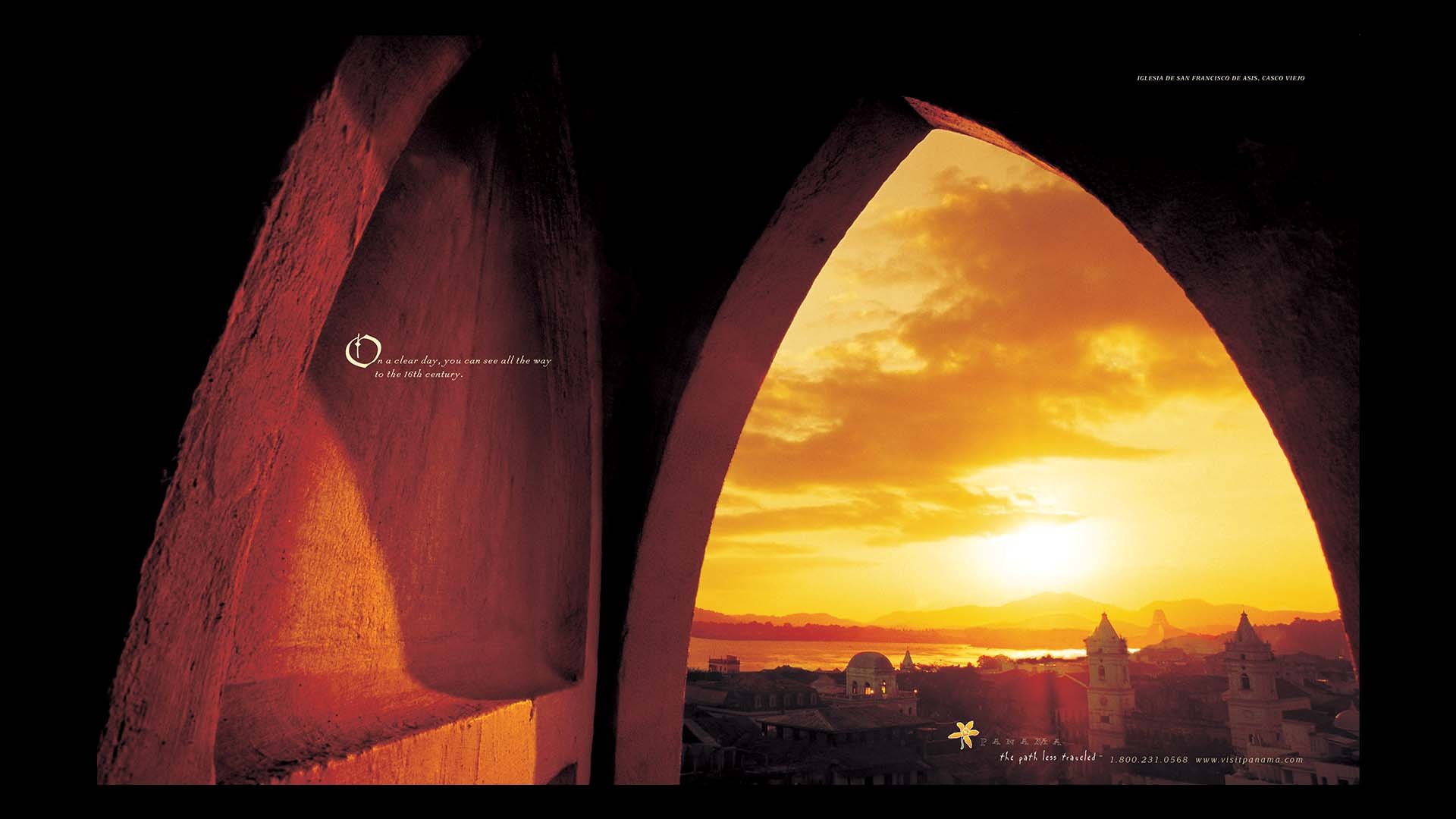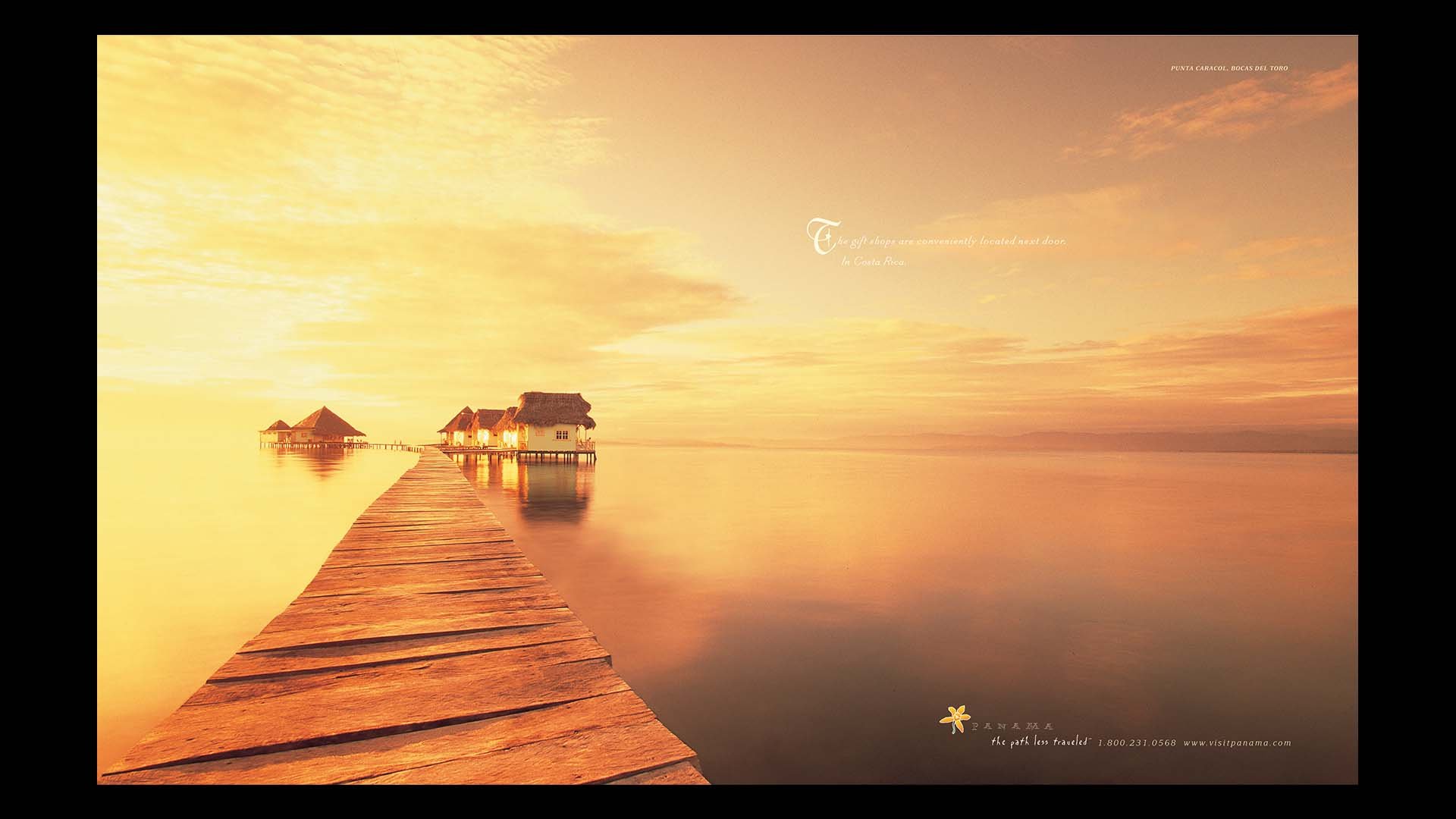A long time ago people used to read words. On paper.
And they liked it.
So we would write carefully and design deliberately, doing our best to reward readers’ interest with something intelligent, informative, or at least worth a chuckle.
Nothing was clickable, but it felt like anything was possible.
To get a look at what advertising was like back then, you’ll have to do what we all did.
Keep reading.
Panama Tourism
Still my favorite account of all time. No budget, but all heart. The agency sent a handful of us down to Panama City to team up with the local office for the pitch. I presented my entire part in Spanish. We won. It was a great experience. These were recognized by CA magazine and the One Show.
Headline: On a clear day, you can see all the way to the 16th century.
Headline: The gift shops are conveniently located next door. In Costa Rica.
Headline: We’ve got everything most people want in a vacation. Except for most people.
Headline: OK, so your footprints won’t be the first ones on the beach. But chances are, they will be the first ones shaped like a size 10 cross-trainer.
Starlight Six Theatres
One of the last drive-ins in the South was losing customers and in danger of closing. We created this outdoor campaign to remind people just how much fun the drive-in can be.
National MS Society
A pro bono campaign my partner and I did in our free time to raise awareness of the challenges faced by people living with MS.
Headline: The driveway ………………………… The front door.
Body copy (for all 3): For people with MS, every day is a challenge.
Headline: The produce section………………..The checkout counter.
Headline: The water cooler………………….….The copier.
Communication Arts Magazine
If you know, you know.
We used to get reprints made of all the ads, see. And the awards annuals all had directories in the back, so you could look up who did the work you were most jealous of. You couldn’t just Google it. You had to wait for the annuals to come out and…ah, never mind.
Carolina Power & Light
I’ve held onto this because it felt like such a win to convince a power company client to run an ad saying they didn’t want electricity somewhere. All this time later, it feels like a bold stand for a utility to take.










